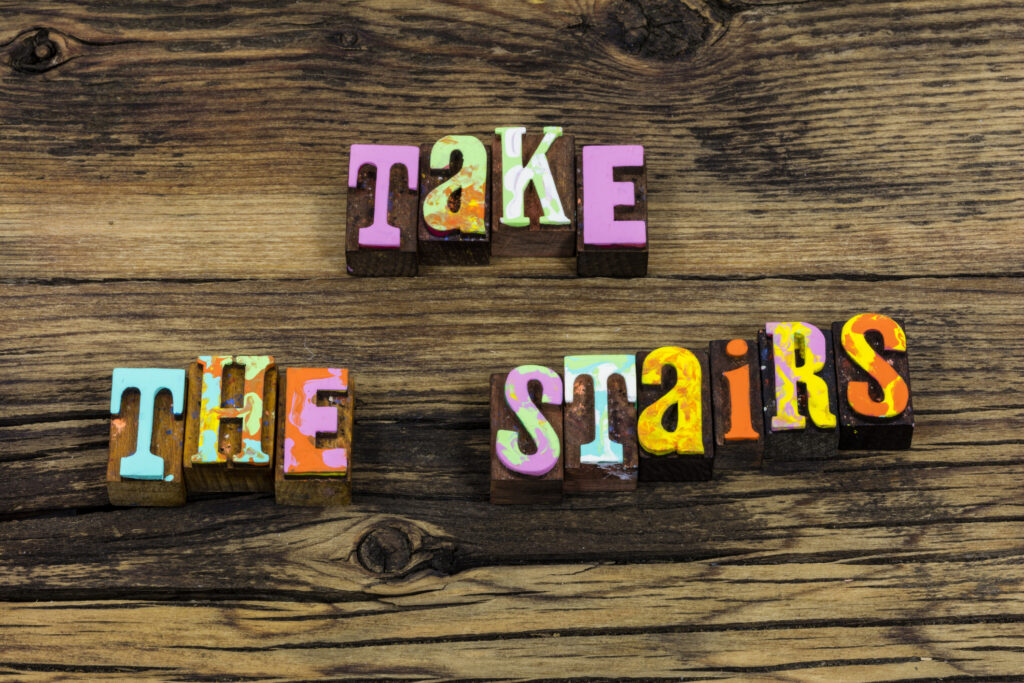How’s your new year’s resolution going? Did you choose a popular resolution like eat healthier, exercise more, spend less, or get organized? All are well intentioned behaviors but also very hard to follow through! If your resolve is starting to falter, don’t despair. It’s not you; it’s the habit-building process that needs work.
Many people think they just have to repeat something for 21 days in order for it to stick. Not true. Don’t believe me? Ask a recovering drug addict.
According to a 2009 study from the University College London, it takes habits on average 66 days of consistent behavior before they become automatic. 66 days!!! That’s a long time to wait for something to change.

So we shouldn’t feel like failures if our habits aren’t feeling so natural yet.
Also don’t feel discouraged, that’s 66 days to feel automatic. Your new habit may not feel natural as quickly as you’d like but that doesn’t mean it can’t provide a quick win. You can experience the benefits of most habits within only a few days. Some almost immediately. Consider these examples.
Quit smoking – within 48 hours, sense of smell and taste return
Exercise more – improved sleep and energy
Get sufficient sleep – reduces stress and blood pressure
Eat healthier – weight loss, improved energy, reduced bloat
It takes on average 66 days for a habit to feel automatic
Our brains like habits because they’re efficient. Remember that our reptilian brains are always trying to conserve energy and resources for survival purposes, so habits are ideal. But initially when our brains are doing something new that expends energy, so it makes sense they’ll be resistant. Just stay the course. It will get easier!

Also our progress is wholly dependent upon how deeply seated the habit is. Pleasure-based habits are the most difficult to break because chemicals are released into our brains. Powerful chemicals such as dopamine. Chemicals that flood our pleasure-seeking brains with good feelings. These endorphins strengthen the habit and create the craving again and again. And again.
Nicotine, cocaine, and heroine are examples of addictive substances that release dopamine. Treatment of dependency is complex and involves a medical doctor. Whereas, drinking less soda, spending less money, or reading more books are behaviors less complex to resolve.
Here are 7 tips to help ingrain a new behavior successfully:
Set Up For Success
It can be tempting to create aggressive habits because we want instant results. But creating realistic habits will produce the best results. Consider reasonable yet slightly challenging habits. The most effective habits will produce measurable results without so much sacrifice or abuse that we feel discouraged and quit.

Make It Simple
Recognizing what our obstacles are and planning around them is invaluable. If the habit is to exercise first thing in the morning, having clothes and water bottle at the ready will prevent early derailment. Reading a book a week is easier if we create an interesting list of books to read and have several on hand.
Change the Environment
It’s difficult to change ingrained behavior so it’s helpful if we change our environment by removing cues that we associate with the old habit. I.e. shopping at a different grocery store to choose healthier food options -or- rearrange home furniture to adopt a home exercise routine. Two things happen with the new cues, 1) we’re reminded we have new goals, and 2) we don’t have the old cues to remind us of our old habits.

Change the Strategy
Stopping habits is much harder than starting habits. Given that, a good strategy would be to change a bad habit. That is, instead of giving up coffee, try substituting herbal tea. When decreasing social media presence, take up a new interest such as dance, reading or exercise. The new behavior is the go-to when the craving hits for the old habit.
Enlist Help
Accountability can be a strong factor for success in nailing down a new habit. Enlisting a friend or family member to report our results can give us that extra needed boost to follow through with the new behavior. Knowing we can honestly send a check-in text, email or phone call at the end of the day is motivating to stay on track.

Remember the Motivation
Remembering the why behind the new habit can be sufficient motivation as well. I.e. getting to bed earlier for more rest -or- eating better to lose weight. But take it a step further and visualize the results. Saving enough money for a weeklong family vacation next summer at a popular theme park -or- looking fabulous & feeling confident in that smaller dress for an upcoming event.
Don’t Compare Results
The only exception is comparing our own results. But comparing with other people or other experiences is only an exercise in frustration. It will be discouraging and only hinder our progress. Avoid the temptation. We all have different goals and expectations, so comparing results is futile.

Progress Not Perfection
There will be times when our progress stalls or we fall off the wagon. It happens. We’re learning new behaviors and it takes some practice. It’s important to recognize the misstep, brush ourselves off and continue our journey.

